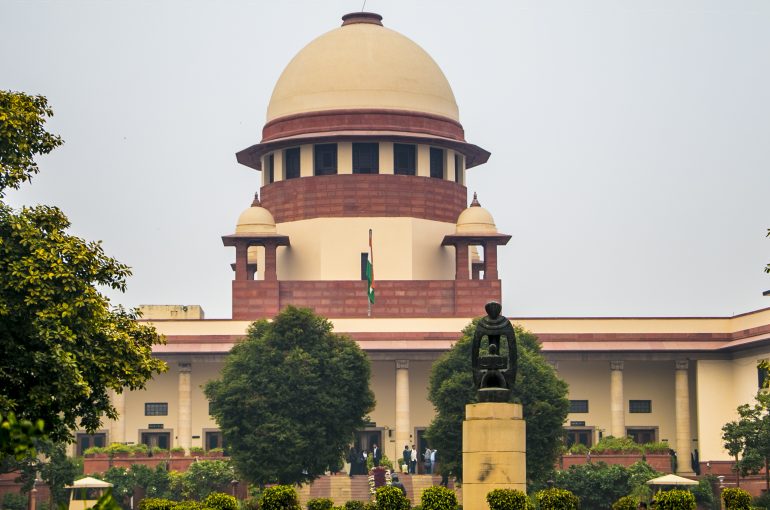JUDICIAL DISCIPLINE AND ACCOUNTABILITY: SUPREME COURT’S REBUKE ON IMPROPER SURRENDER OF JURISDICTION

INTRODUCTION
The Supreme Court of India in Shiv Kumar Shaw Anr. v. Rekha Shaw
(Diary No. 45777/2024) (arising out of Crl.A. No. 2842/2023), passed its Order
on 26 September 2025. The Bench consisted of Justice Pankaj Mithal and
Justice Prasanna B. Varale. The case revolved around the unusual conduct of
a Trial Court Judge who, unable to decide a matter within the timeline fixed by
the Supreme Court, declared that he had ceased to have jurisdiction over the
case. The Apex Court condemned such an approach and issued directions
ensuring judicial accountability.
BRIEF FACTS
In January 2024, the Supreme Court had directed a Judicial Magistrate to
dispose of a pending case within six weeks. However, when the matter was not
decided within the stipulated time, the concerned Magistrate, instead of seeking
an extension, passed an Order dated 19 March 2024 stating that he had lost
jurisdiction to proceed with the matter since the Supreme Court’s timeframe had
lapsed.
This act raised concerns regarding the interpretation of judicial directions and
the responsibility of subordinate courts in complying with higher court orders.
Aggrieved, the Petitioners approached the Supreme Court once again, seeking
appropriate clarification and remedy.
ISSUES OF LAW
1) Whether a Trial Court Judge, on failing to comply with a timeline fixed
by the Supreme Court, can declare that he has ceased to have jurisdiction
over the case.
2) What is the proper course of action for a subordinate judge when unable
to adhere to time-bound directions of the Supreme Court?
3) Extent of supervisory and corrective powers of the Supreme Court to
ensure compliance with its orders.
ANALYSIS
The Supreme Court expressed serious displeasure over the manner in which the
Trial Judge abdicated his responsibility. The Court observed that while delays
may occur due to genuine circumstances, the correct course for a subordinate
judge is to seek an extension of time from the appropriate authority or higher
court, not to relinquish jurisdiction altogether.
The Bench noted that such conduct undermines the hierarchy of judicial
functioning and compromises litigants’ faith in the justice delivery system. By
surrendering jurisdiction without authority, the Magistrate effectively stalled the
proceedings, which was impermissible.
Accordingly, the Court directed the District Judge concerned to call for an
explanation from the erring Magistrate and submit a report within a month. The
Supreme Court also directed that the Registry forward a copy of its order to the
relevant authorities for administrative action, thereby reinforcing judicial
accountability.
Additionally, the Court granted the Petitioners two weeks’ time to file their
response and place on record the reasons for the delay in disposal of the matter.
CONCLUSION
The ruling underscores the discipline expected within judicial hierarchy.
Subordinate judges cannot arrogate to themselves the authority to declare loss
of jurisdiction merely because a timeline fixed by the Supreme Court was not
met. Instead, they are duty-bound to seek extensions and ensure continuity of
proceedings.
By censuring the Magistrate’s conduct and calling for an explanation, the
Supreme Court reaffirmed that judicial accountability is not optional but an
essential component of the rule of law. The Order is a reminder that the
authority of courts must be exercised with responsibility, and procedural lapses
cannot be allowed to defeat substantive justice.
SARTHAK KALRA
Senior Legal Associate
The Indian Lawyer & Allied Services
Please log on to our YouTube channel, The Indian Lawyer Legal Tips, to
learn about various aspects of the law. Our latest video, titled
Legal Requirements for Indian Startups| Complete Q & A 2025 | Advocate
Sushila Ram Varma”





































Leave a Reply